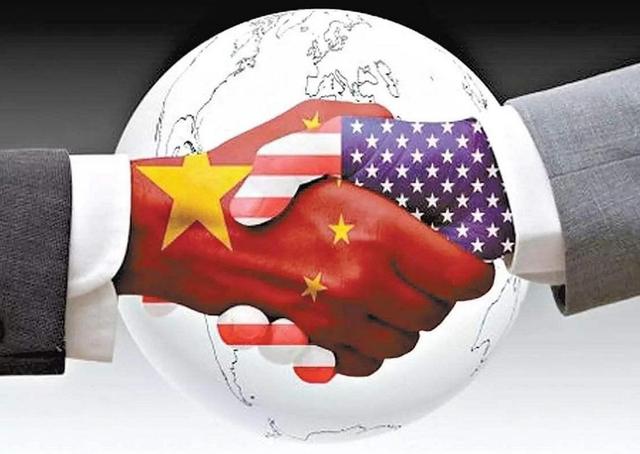Huang Renwei: Academic Committee Member, CISS, Tsinghua University, Executive Director-General, Fudan Institute for Belt and Road and Global Governance, China Forum Expert
Today, I am honored to be here with our American friends to commemorate the 50th anniversary of the Shanghai Communique and Nixon's visit to China. This is the day of great historical significance.
To commemorate the Shanghai Communique means to deeply understand its historical background, to understand its rich content, and the great practical significance still existing today.
Before discussing these major issues, I want to tell a short story. In February 1972, when I was under 18 years old, I was standing guard on the China-Soviet border, braving the severe cold of minus 40 degrees, facing the Soviet army. At that time, we received a radio broadcast from the Soviet Union, which said that “the Communist Party of China and the US imperialism colluded against the Soviet Union”. We thought it was a rumor. One month later, I read the People’s Daily, with a picture of the chairman Mao shaking hands with Nixon. Our quasi-war state on the border was the strategic background of Nixon's visit to China.
Although I did not participate in the major historical events such as Nixon’s visit and the process of drafting and negotiation of the Shanghai Communique, we were still some part of the strategic triangle between China, the US and the Soviet Union at that time.

We should remember the bigger background of the Shanghai Communique is that China and the United States faced a common threat -- the hegemonism of the Soviet Union -- that our two countries should be together to deal with and came out the common interests. This is what President Nixon said when he came to China: “It is the common interests that brought us together.”
This common interest has always been there since then, and has become more and more extensive and profound. This was the strategic background of the history as well as the reality we are facing today. After “9·11”, we faced the common threat of international terrorism. After 2008, we faced the common threat of the international financial crisis. Since 2020, we have been facing a common threat of COVID-19. In the future, we will also face the threat of global warming.
Another major issue to be solved in the Shanghai Communique at that time was the Taiwan issue. The Taiwan issue has always been the most important, critical and sensitive core issue of the Sino-U.S. relations. In order to reach the consensus of the Taiwan issue in the Shanghai Communique, Mao Zedong, Zhou Enlai, Nixon and Kissinger tried their best to retain their differences and find common ground with wisdom, flexibility and inclusiveness, perfectly embodying broad-mindedness and subtle art.
China and the United States had different interpretations of “One China” in the Shanghai Communique, but they found some way to express the core principle of “One China”. Only on this basis, there was the development of Sino-U.S. relation in 50 years. If the Shanghai Communique had not reached the consensus on “One China”, how could we commemorate this great historical document today?
On the other hand, due to historical limitations, there was compromise in the Shanghai Communique, the Taiwan issue had not been completely resolved and have become the biggest obstacle to the bilateral relation, and even the most negative factor affecting regional security. There are always anti-China and pro-Taiwan political forces in the United States. They make use of the Taiwan issue to fan the flames, make waves and create crises. We should control the situation cross the Taiwan Strait and to insist the “One China” principle. This is the major implication of today’s commemoration of the Shanghai Communique.
Third, the vital spirit of the Shanghai Communique is to seek common ground while reserving differences. Fifty years ago, China was still in the struggle of the “Cultural Revolution”, and China and the United States could still find consensus, common language and common ground on the premise of clarifying differences. As stated in the Shanghai Communique, neither China nor the United States sought hegemony in the Asian-Pacific region, and both of them opposed to the attempts of any country to seek the hegemony. This is still the basis for the construction of the regional order in the region, for which China and the United States share common responsibility.
Opposing regional hegemony, and adhering to the “One China” principle are the core contents of the Shanghai Communique. They set the starting point of Sino-U.S. relation 50 years ago. Today, they are still the foundation and framework of Sino-U.S. relation.
Today, the contents under this framework are much richer, deeper and broader than 1972. We are facing a globalized world, the common task of global governance and the common challenges in many fields. The ties established by the Shanghai Communique can never be cut by the so-called “decoupling” economically, socially and culturally.
Nowadays, the base and the framework of Sino-U.S. relations is facing a historical test. Will the future be more fragile and danger or more solid and stable? This is our two people are worrying about.
The China-US relations has experienced ups and downs, turns and twists in last 50 years. It will be repeated in the next 50 years. However, the general trend of peace and development cannot be changed, retrogressed and destroyed. Because it is in the common interests of the two countries, the two peoples and all countries in the world.
To this end, we are looking forward the next 50 years. China and the United States will be the two most important countries in the world and will promote a bilateral relationship of equality and mutual benefit, mutual respect, mutual cooperation, coexistence and win-win results. The people of the two countries will keep on this path, and no one can change this general direction. Only if persevere and keep on going can we win the final victory!
